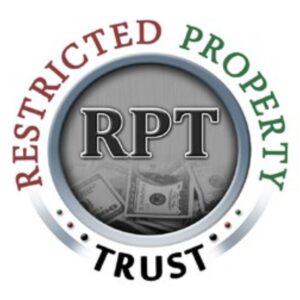Strategic Wealth Management: Future-Proofing Your Finances with Restricted Property Trusts
Strategic Wealth Management: Future-Proofing Your Finances with Restricted Property Trusts
Blog Article

In the current uncertain financial environment, safeguarding and safeguarding assets for the future is more important. Restricted Property Trust offer a forward-thinking approach to protecting and managing assets, ensuring your assets are protected against evolving challenges. This article delves into the role that RPTs play in part in safeguarding the financial future of your family.
What Are Restricted Property Trusts?
Restricted Property Trusts are specialized financial structures designed to protect and manage assets with specific conditions. In contrast to traditional trusts, RPTs have restrictions on how assets are access, used or transferred. These conditions provide a unique degree of security and control, which makes RPTs an effective instrument for managing wealth over the long term.
Key Benefits of RPTs for Future-Proofing Your Wealth
1. Improved Asset Protection The primary benefits of RPTs is the ability to shield assets from risk, including the possibility of legal claims, creditors and financial uncertainties. By putting assets in an RPT, they build an extra layer of protection that can help protect your wealth from unforeseen circumstances, and ensures that it remains intact for the future.
2. Revenue Efficacy: Tax-efficient RPTs provide substantial tax advantages, which makes them a valuable instrument for ensuring your financial future. Contributions to trusts can be tax-deductible and the trust's income can receive tax advantages. This can result in substantial tax savings and contribute to the growth in your wealth.
3. Strategic Estate Planning: RPTs are invaluable to use for estate planning strategically which allows the transfer of assets and property to beneficiaries, while keeping the control on the process of distribution. This will help simplify the estate planning process, minimize estate taxes, and also avoid the hassles of probate, ensuring the smooth transfer of wealth to the next generation.
4. Control and Flexibility In spite of the limitations, RPTs allow for flexibility in the way assets are distributed and managed. Trustees can be given specific guidelines for managing assets to ensure that your financial objectives and the legacy plans are in place. This degree of control lets you adapt the trust's structure to changes in circumstances and the changing financial goals.
Setting Up and Managing an RPT
Establishing an Restricted Property Trust involves careful planning as well as collaboration with legal and financial experts. They can assist you in establishing a trust that aligns with your individual needs and goals. The trust agreement will detail the limitations, conditions and obligations that are associated with the assets, which will ensure a well-structured approach to future-proofing your wealth.
Regularly scheduled reviews and updates of the RPT's information are necessary to ensure that the trust continues to meet your evolving needs and adapts to changes in your financial situation. This proactive management helps keep the effectiveness of the trust in securing and growing your assets.
Conclusion
Restricted Property Trusts offer a effective way to secure your wealth. They provide greater security, tax efficiency and efficient estate planning. Through the use of RPTs, you can protect your legacy of financial wealth improve your wealth management plan and secure a long-term financial future for the assets you have. It is crucial to tailor the RPT to your requirements and ensure that your wealth remains safeguarded and well-managed for years to be. Take advantage of the power to use Restricted Property Trust (RPT) to create a a resilient and safe financial future.
Report this page